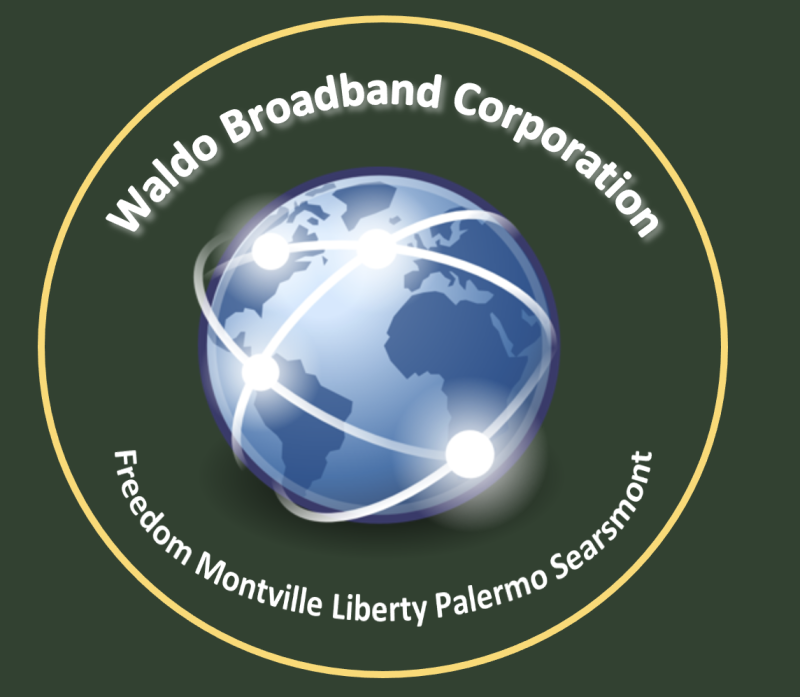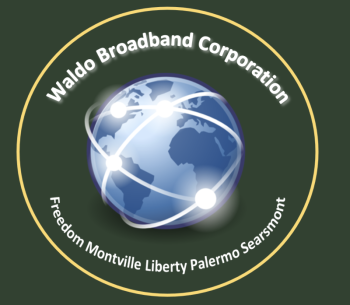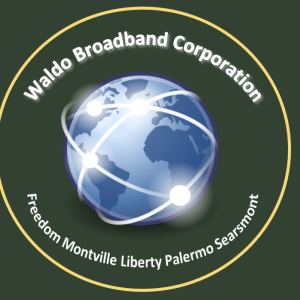Why Waldo County citizens support community-owned broadband, and wish the state would support it more
Most people in our rural area favor competition as the best method of ensuring fair prices and high levels of service, so it took some time for many of us to come around to the idea of “community-owned” broadband.
But we found that in rural areas, expecting several potential suppliers of high-speed internet isn’t realistic because it costs too much to create the necessary infrastructure, and having only a small number of for-profit suppliers put our citizens in a bad position in terms of bargaining power. So, we opted for community ownership and control of broadband.
Here’s a quick summary of the thinking that got us there, and a note of concern we have about how broadband funding is currently being handled by the new state agency charged with distributing that taxpayer money.
First, we realized that access to reliable, affordable internet is almost as essential to modern life as electricity or phone service.
People were too often unable to be hired for good-paying jobs because their home internet couldn’t support the employer’s work-from-home requirements. Children were struggling to complete research for homework or attend class online, and increasingly, we expect telehealth to play a bigger role in healthcare for rural communities. Our citizens realized that broadband is no longer a luxury and is now a necessity, and our rural communities need it to thrive.
Next, we discovered that existing internet services providers (ISP) aren’t beating down the doors to build out their networks unless someone else pays for most of that construction. Much of our current electricity and phone service in rural America exists today because government subsidies made that possible. As much as we may dislike government subsidies, we decided that we may as well accept them as necessary in this case, and instead focus on making sure local communities have control over how those dollars are spent.
One approach we considered was just handing over taxpayer dollars to for-profit companies, to subsidize the cost of building a broadband network. But as we tried to explore that approach, traditional ISPs didn’t seem interested in giving us guarantees against things like big price increases in future years, or in some cases even ensuring that all our residents received service.
We noticed that most of the projects funded by the Maine Connectivity Authority (MCA) so far have been for projects that have for-profit companies receiving taxpayer dollars but without those communities having an ownership stake in the network, which is exactly the type of thing our communities chose to avoid.
Maybe those projects included guarantees we weren’t able to obtain, but no one seems to be saying much about that. We’re curious to learn more, but in our towns, we decided our citizens needed certain protections and guarantees, so we decided to tackle the problem the same way Mainers have tackled problems for centuries: We decided to do it ourselves (with some expert outside help, of course).
Our five small towns formed a broadband utility district, or BUD. If we can obtain the funding necessary to get a good start on our network from those government grant programs that have so far focused primarily on funding for-profit companies, we’ll be able to provide reliable broadband to everyone in our towns while controlling the rates customers are charged and the service levels they receive.
We think it’s a great plan that allows our communities, rather than some big corporation, to determine what our people need and what it will cost them to have it.
Not a penny of the first round of grant money given out by the MCA was awarded to a broadband utility district, and most of the money didn’t go to projects owned by communities. We sure hope that changes, and soon. The future of rural Maine communities may depend on it.
Waldo Broadband Corporation Board of Directors includes:
President Robert Kurek, of Palermo
Vice President Joe Meadows, of Liberty
Secretary Pete Milinazzo, of Searsmont
Treasurer Phil Bloomstein, of Freedom
Jim Troutman, of Montville

























